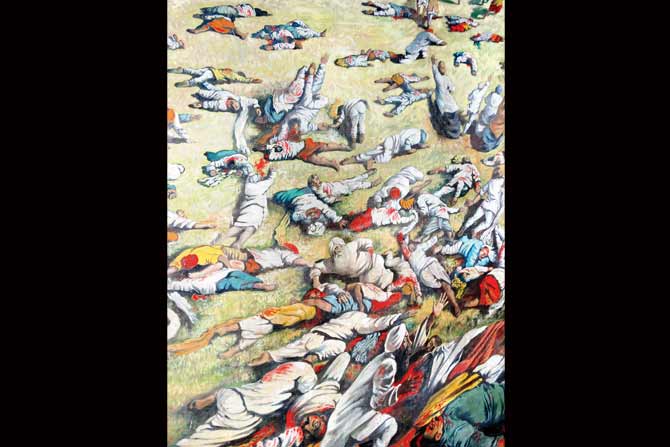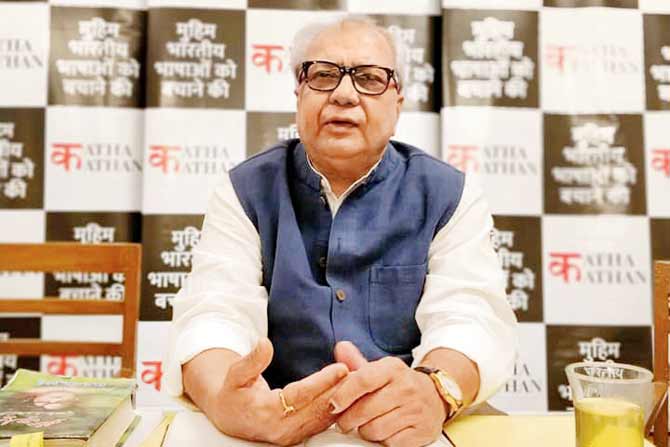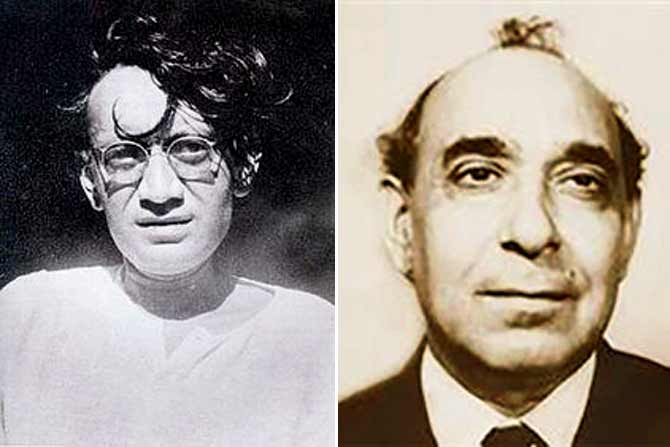Ahead of Independence Day, an Urdu mehfil of Krishan Chander's short stories, and a bouquet of tiny tales by Manto serve as reminders of the pain of Partition

Indian soldiers walking through the debris of a building in Amritsar in August 1947. Pic /AFP
As Jameel Gulrays recalls lines from a story from Krishan Chander's Hum Wahshi Hain (We Are Savage), depicting a gut-wrenching scene of a train carrying refugees — dead and alive — across the newly formed border between India and Pakistan, he takes a moment to regain his composure; his voice nearly choking. A collection of short stories set in the time of Partition, they recount, as the title suggests, the horrors of violence men unleashed on one another, making it one of the bloodiest events in human history.
ADVERTISEMENT
"These stories are prose in the form of poetry; poetry that gives you goosebumps, leaving you shattered," shares Gulrays, founder of Katha Kathan, an initiative to bring people closer to Indian languages through literature. This evening, he will present Amritsar Azaadi Se Pehle, and Amritsar Azaadi Ke Baad from Chander's short story collection, Hum Wahshi Hain, along with over 15 of Saadat Hasan Manto's tiny tales that revolve around the trauma of Partition, for the session Taqseem-e-Hind (the division of India).

A painting depicting the Jallianwala Bagh massacre
"When the idea of presenting a selection of short stories for Mehfil@Prithvi organised by Danish Husain surfaced, we wanted to go beyond the obvious choice of doing something on independent India, and instead share stories written on the pain of the division of India," says Gulrays.
Chander, an eminent Hindi and Urdu writer, was a contemporary of Manto and Ismat Chughtai. Having moved to Bombay to chart a career in writing, the city was as much a part of his oeuvre as Manto and Chughtai's, but it isn't as often that we come across his humanist writings celebrated on storytelling platforms in the city — something that Gulrays hopes to change.

Jameel Gulrays
Elaborating on the stories set in Amritsar, he says that while the pre-Independence piece revolves around six characters who were killed in the Jallianwala Bagh massacre of 1919, they are all evoked in the second part when Amritsar is ravaged with violence by its own residents. "There comes a part where an elderly lady, who has been raped and left to die by rioters, reveals her identity as the grandmother of Zainab, one of the martyrs of Jallianwala Bagh. She says, 'Main siyasaton se poochhungi kya Zainab ne isiliye jaan di thi?' ['I will ask the powers that be, did Zainab sacrifice her life for this?']" explains Gulrays.

Saadat Hasan Manto and Krishan Chander
A voracious reader, his first tryst with Chander's stories, however, wasn't in the form of a book he picked up from a library shelf. "Chander was my father's friend. He had terrible handwriting. So, he would call me to write down his stories to send them across to publishers," he reminisces. "He was a very dignified person. He believed in giving detailed descriptions in his stories, which would sometimes have hardly any dialogues. But the way he describes the human condition can leave you speechless."
On: August 13, 7 pm
At: Prithvi House, first floor, Janki Kutir, Juhu.
Email: the.hoshruba.repertory@gmail.com; kathakathans@gmail.com
Catch up on all the latest Mumbai news, crime news, current affairs, and also a complete guide on Mumbai from food to things to do and events across the city here. Also download the new mid-day Android and iOS apps to get latest updates
 Subscribe today by clicking the link and stay updated with the latest news!" Click here!
Subscribe today by clicking the link and stay updated with the latest news!" Click here!






